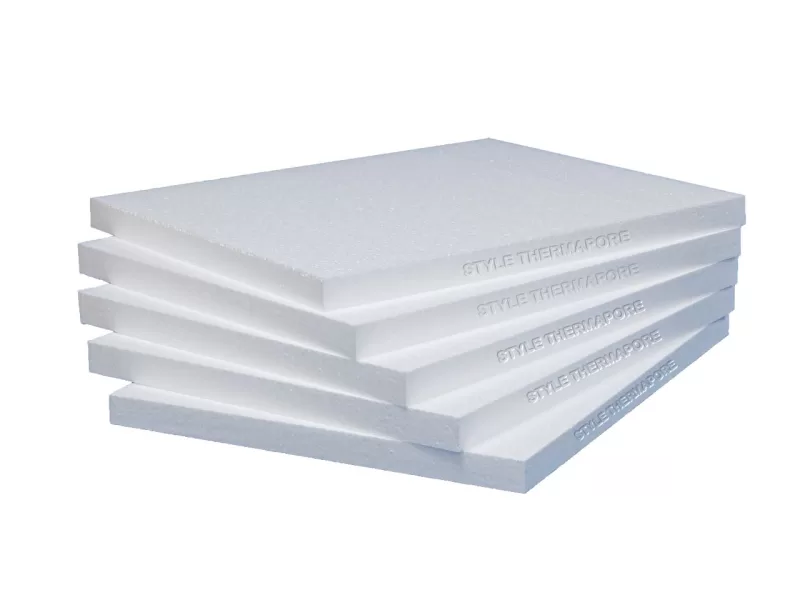
Thermopore insulation, also known as Expanded Polystyrene (EPS) or Styrofoam, is a versatile and efficient material for insulation. This insulation material is known for its excellent thermal resistance properties. In this guide, we will explain what Thermopore insulation is, its advantages, and how you can use it in your space. It is crucial to insulate your home or office space properly to maintain a comfortable temperature and reduce energy costs.
What is Thermopore Insulation?
Thermopore insulation is a rigid foam insulation board created from expanded polystyrene (EPS). EPS consists of tiny beads that are fused to form a solid material. This insulation is lightweight, yet strong and durable because it comprises around 98% air. As a result, it is an excellent insulator widely used in the construction industry for both commercial and residential buildings, as well as in packaging materials.
Types of Thermopore Insulation
There are two main types of Thermopore insulation: expanded and extruded polystyrene. The difference between the two lies in their manufacturing processes, which affect their physical properties.
- Expanded Polystyrene (EPS): This type is created by expanding small polystyrene beads with heat and pressure, and then fusing them to form a rigid board. EPS is known for its lightweight, low cost, and can be easily cut to fit any shape or size.
- Extruded Polystyrene (XPS): XPS is made by melting polystyrene beads and then forcing them through a die using heat and pressure. This results in a dense, closed-cell structure that provides better moisture resistance compared to EPS.
Advantages of Thermopore Insulation
- Excellent Thermal Resistance: Thermopore insulation has a high R-value (thermal
Advantages of Thermopore Insulation
- Thermal Efficiency: Thermopore has a high R-value, which gauges an insulating material’s resistance to conduct heat. The higher the R-value, the better the material insulates.
- Cost-Effectiveness: Compared to other insulation materials, EPS is relatively inexpensive and provides excellent value for the level of insulation it offers.
- Lightweight: Its lightweight nature makes Thermopore an excellent choice for projects where minimizing additional structural weight is critical.
- Moisture Resistance: EPS is inherently moisture resistant, which means it does not readily absorb water, making it an ideal material for damp environments.
- Durability: Thermopore retains its insulating properties over the long term and does not settle or degrade significantly over time.
- Ease of Installation: It can be easily cut to size on-site and fits snugly between wall studs, ceilings, or floors without the need for special tools or equipment.
- Eco-Friendliness: Many EPS products are made using recycled materials and are themselves recyclable, making Thermopore a responsible choice for environmentally-conscious consumers.
Applications of Thermopore Insulation
- Walls: Thermopore boards can be installed in cavity walls or as sheathing on exterior walls to provide a thermal barrier.
- Roofs: For flat or pitched roofs, Thermopore can be used both under roofing material and on the interior ceiling.
- Floors: Laid under concrete floors, it provides a thermal break and contributes to a warmer floor surface.
- Foundations: Applied around a building’s foundation, Thermopore helps in limiting heat transfer from the ground.
- Cold Storage: It is ideal for insulating cold storage facilities due to its excellent moisture resistance and thermal properties.
Installation Tips
When installing Thermopore insulation, consider the following tips for optimal performance:
- Ensure that the surface where Thermopore will be installed is clean and dry.
- Fit the boards tightly to prevent thermal bridging, where heat bypasses the insulation through the least resistant path.
- Seal all seams and joints with appropriate tape or sealant to ensure a continuous thermal barrier.
- Always adhere to local building codes and regulations that may dictate specific requirements for insulation installation.
- Consider using a professional insulation contractor for larger or more complex projects to ensure proper installation and maximum energy efficiency.
By following these tips, you can ensure that your Thermopore insulation is installed correctly and effectively, providing the best possible thermal resistance for your space. With its numerous advantages and wide range of applications, it is an excellent choice for any
Conclusion
It offers an effective and affordable way to improve energy efficiency in both residential and commercial buildings. By following proper installation procedures, you can significantly reduce heat loss in winter and maintain cooler indoor temperatures in summer, leading to lower energy consumption and savings on utility bills. Consider consulting with a professional to assess your specific insulation needs and to ensure that Thermopore insulation is the right choice for your project. Start maximizing the benefits of Thermopore insulation and enjoy a more comfortable living or working space. Additionally, by choosing an environmentally-friendly option like Thermopore, you are also contributing to a greener and more sustainable future. So go ahead and make the smart choice for your insulation needs! Lastly, remember that proper maintenance and regular checks on your insulation can help ensure
